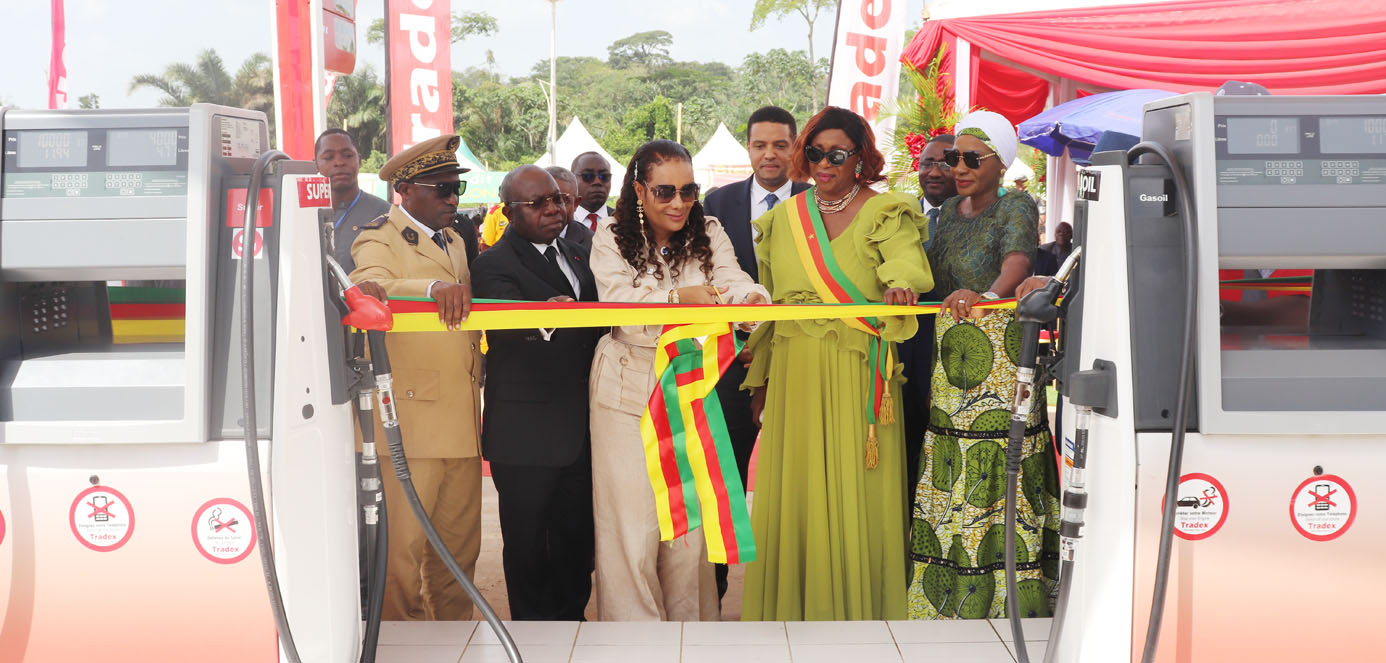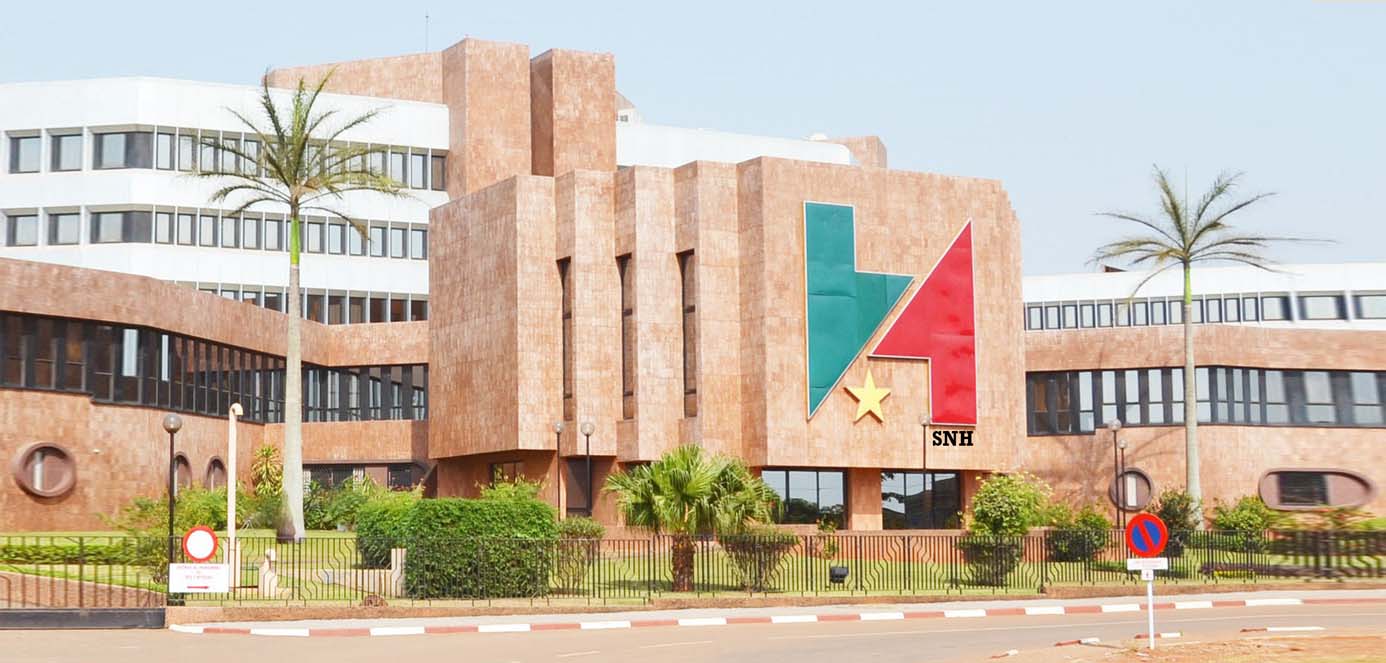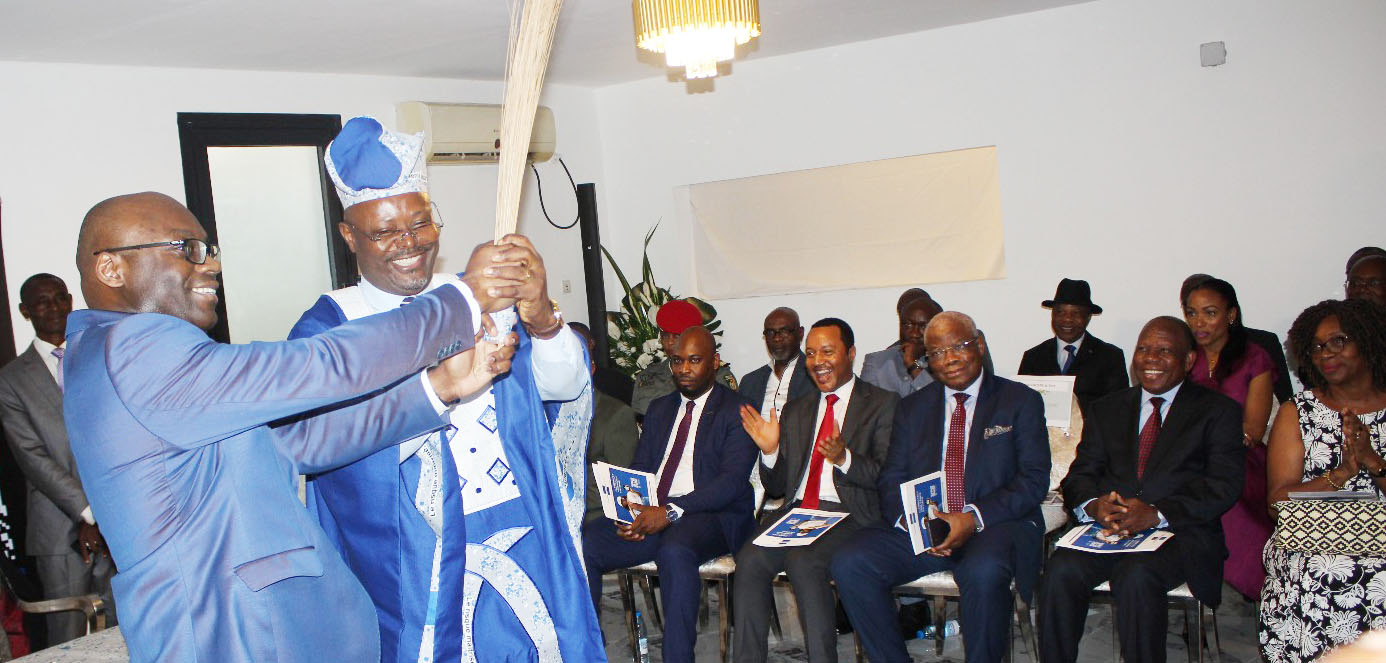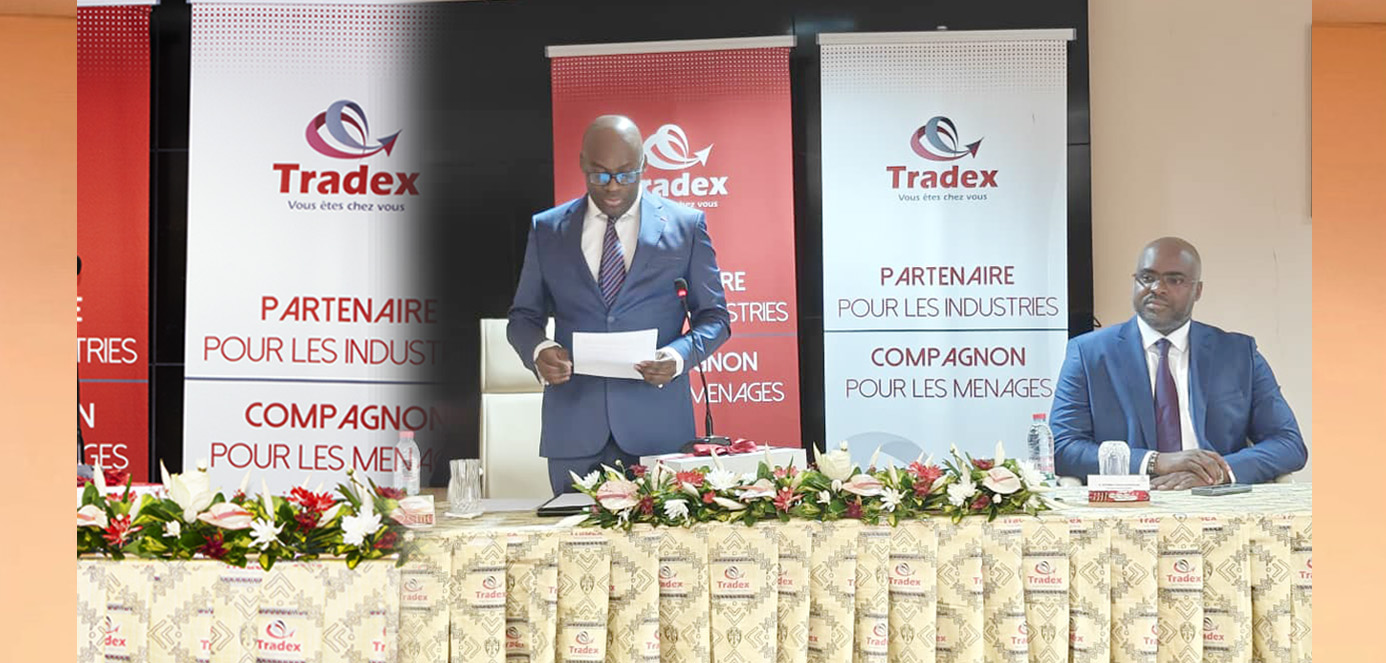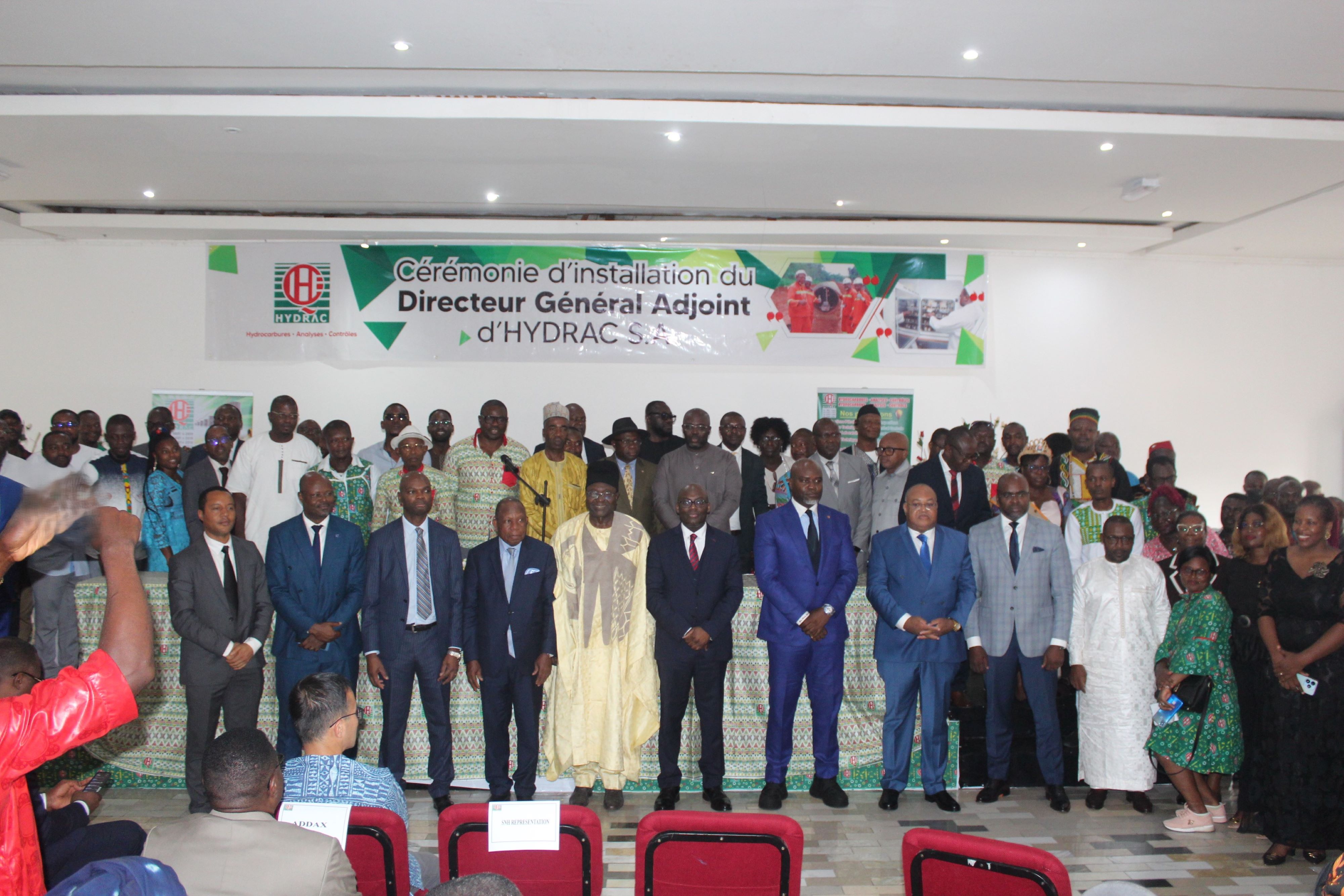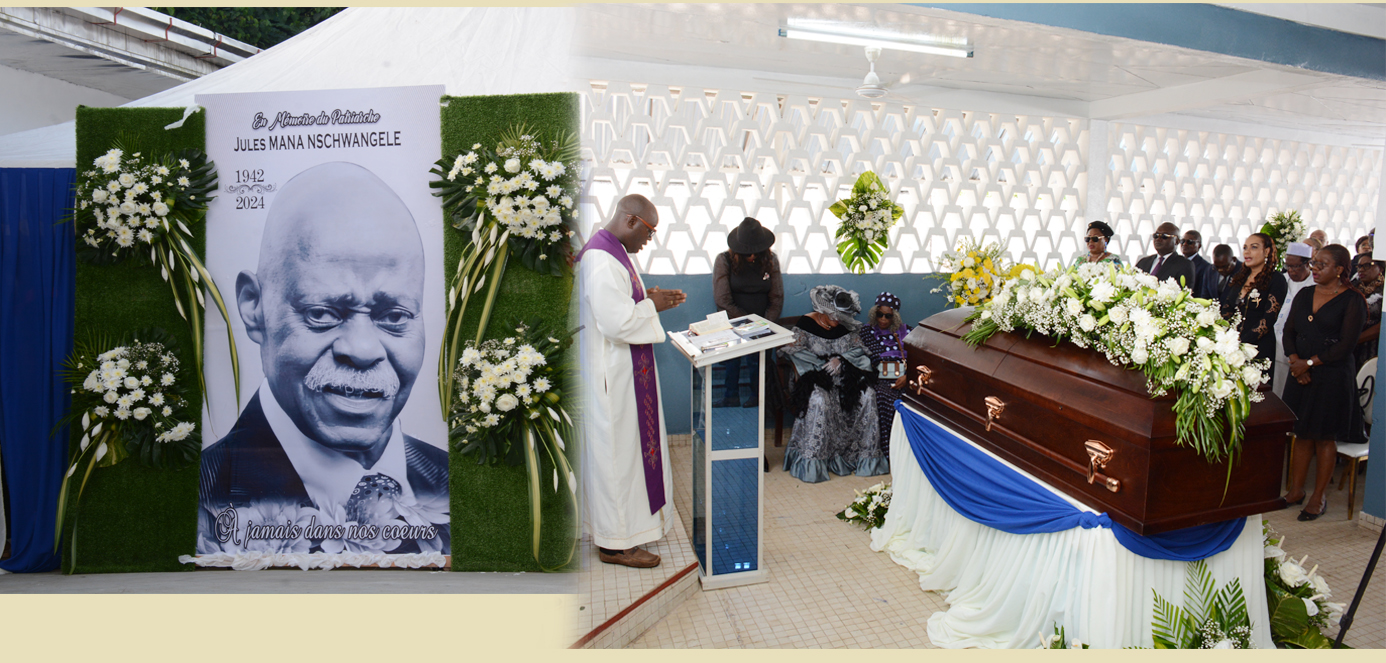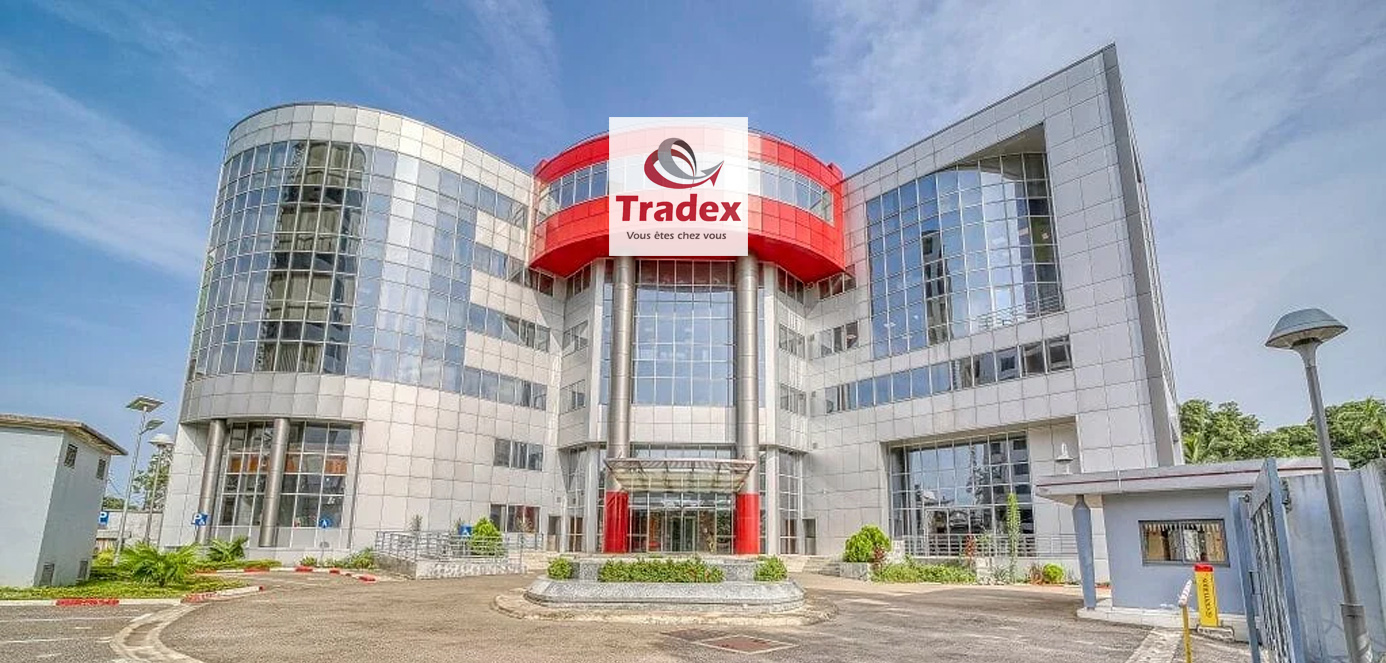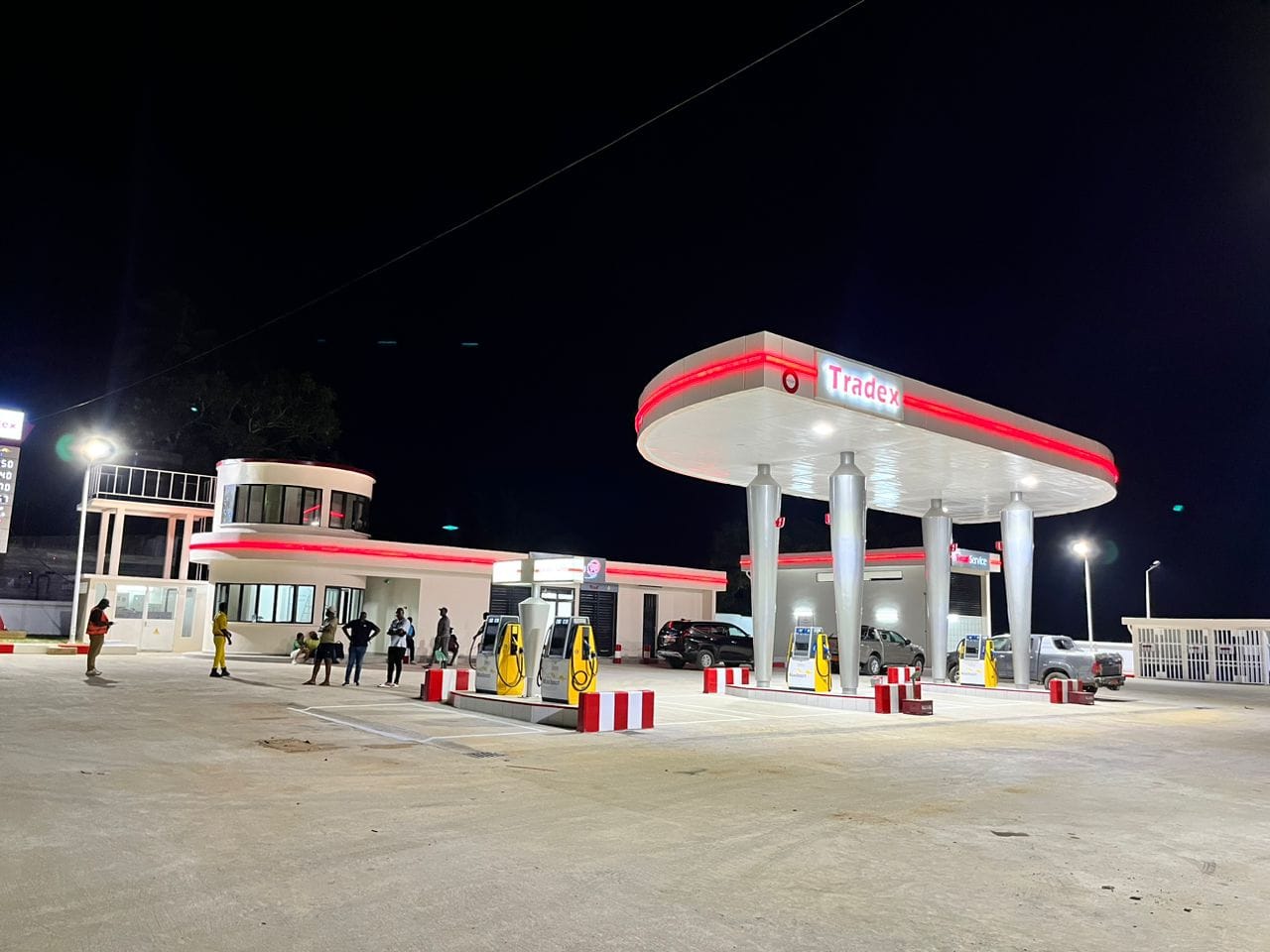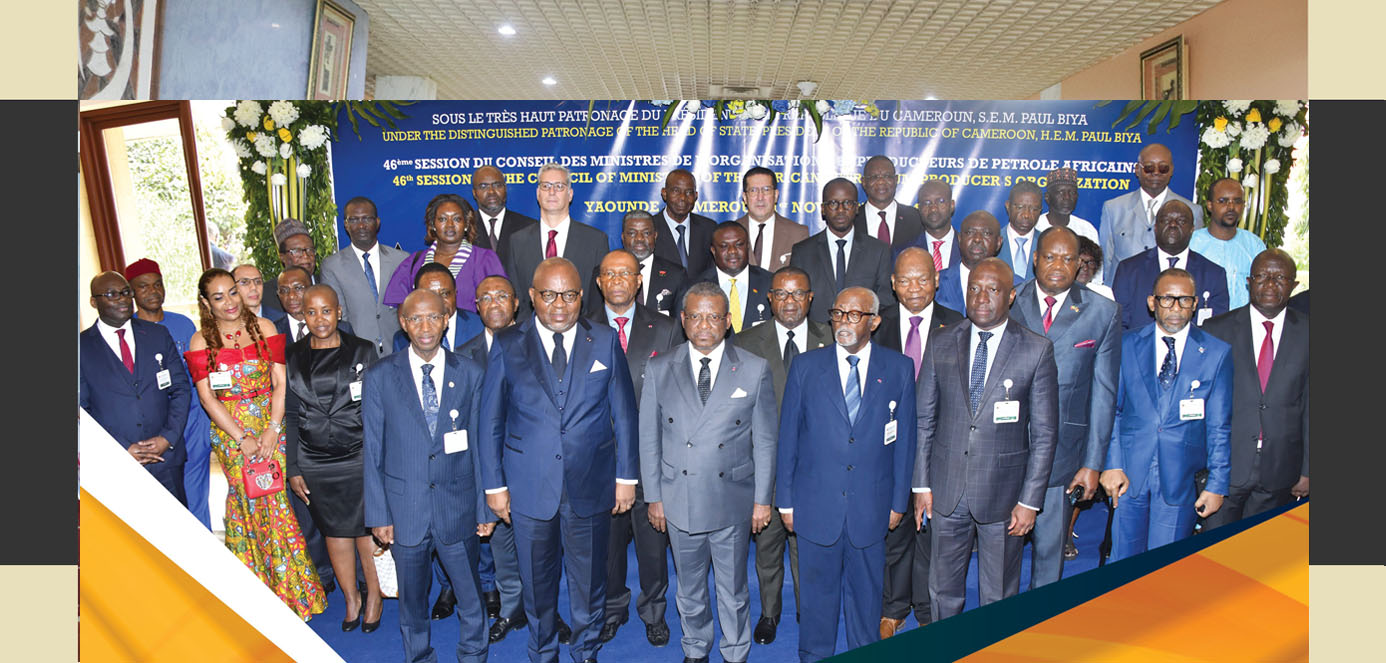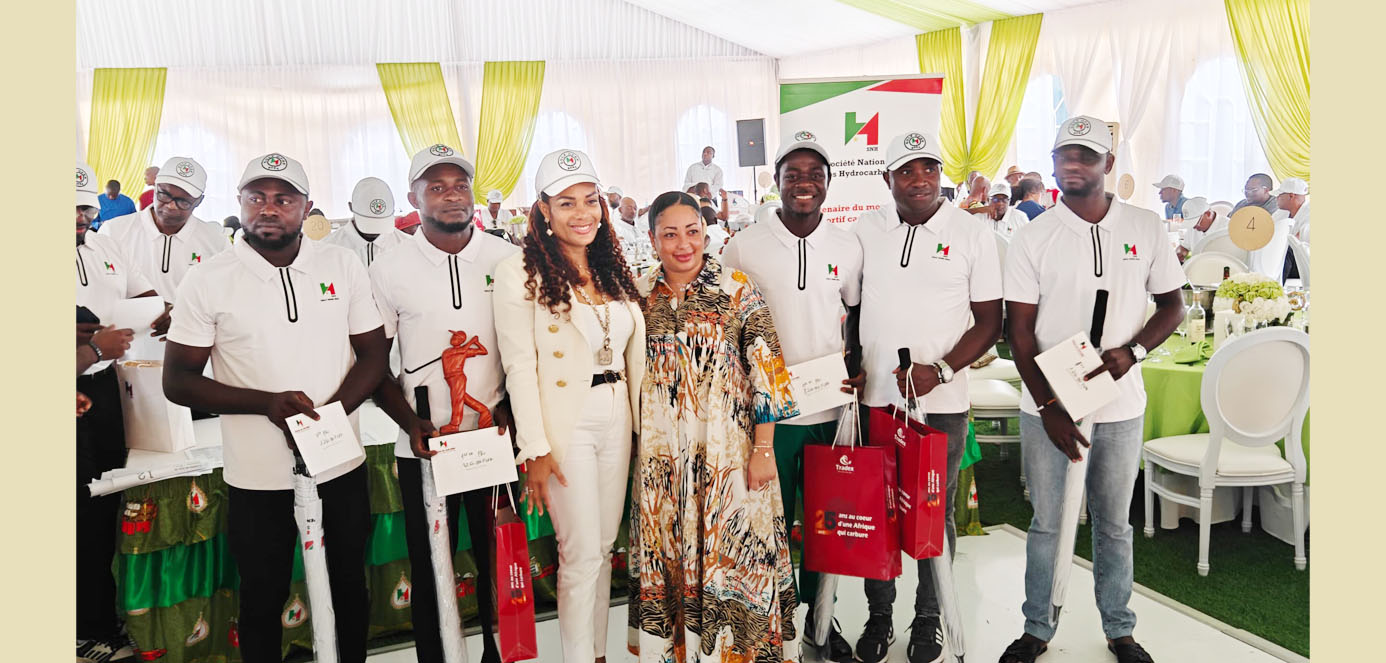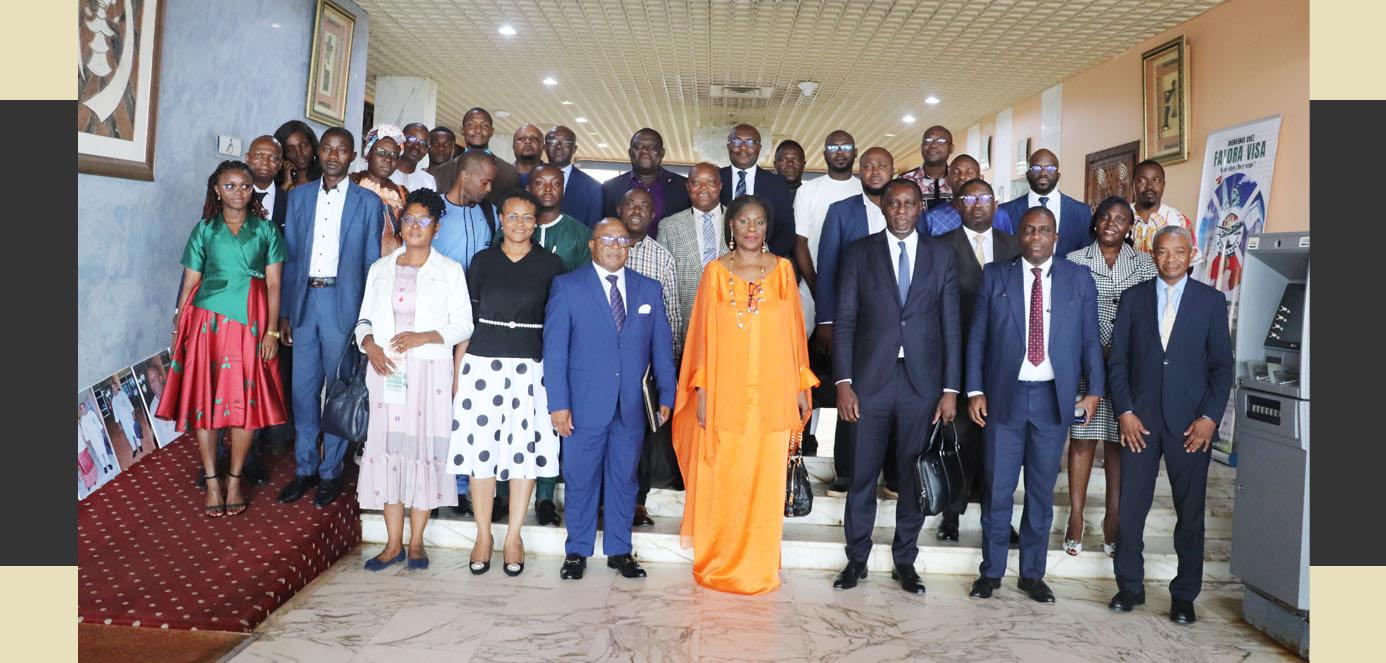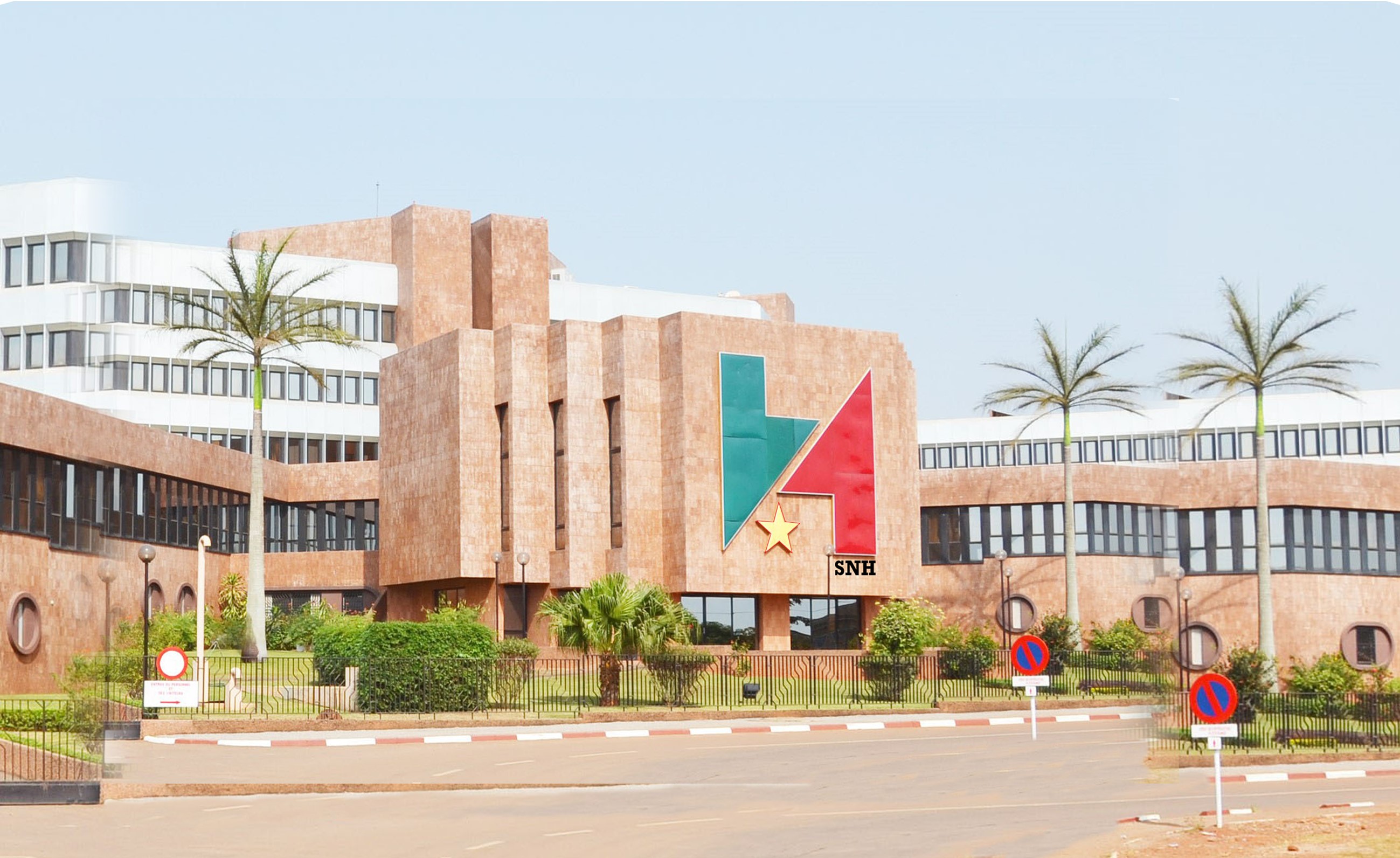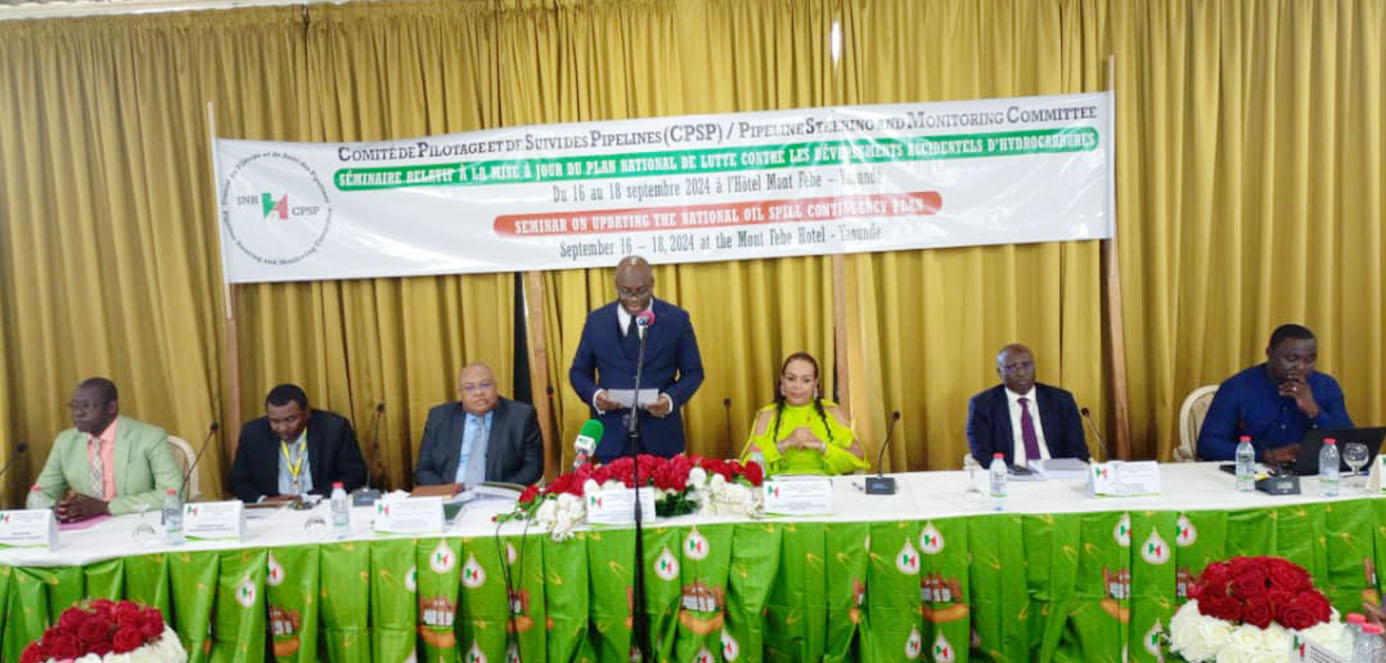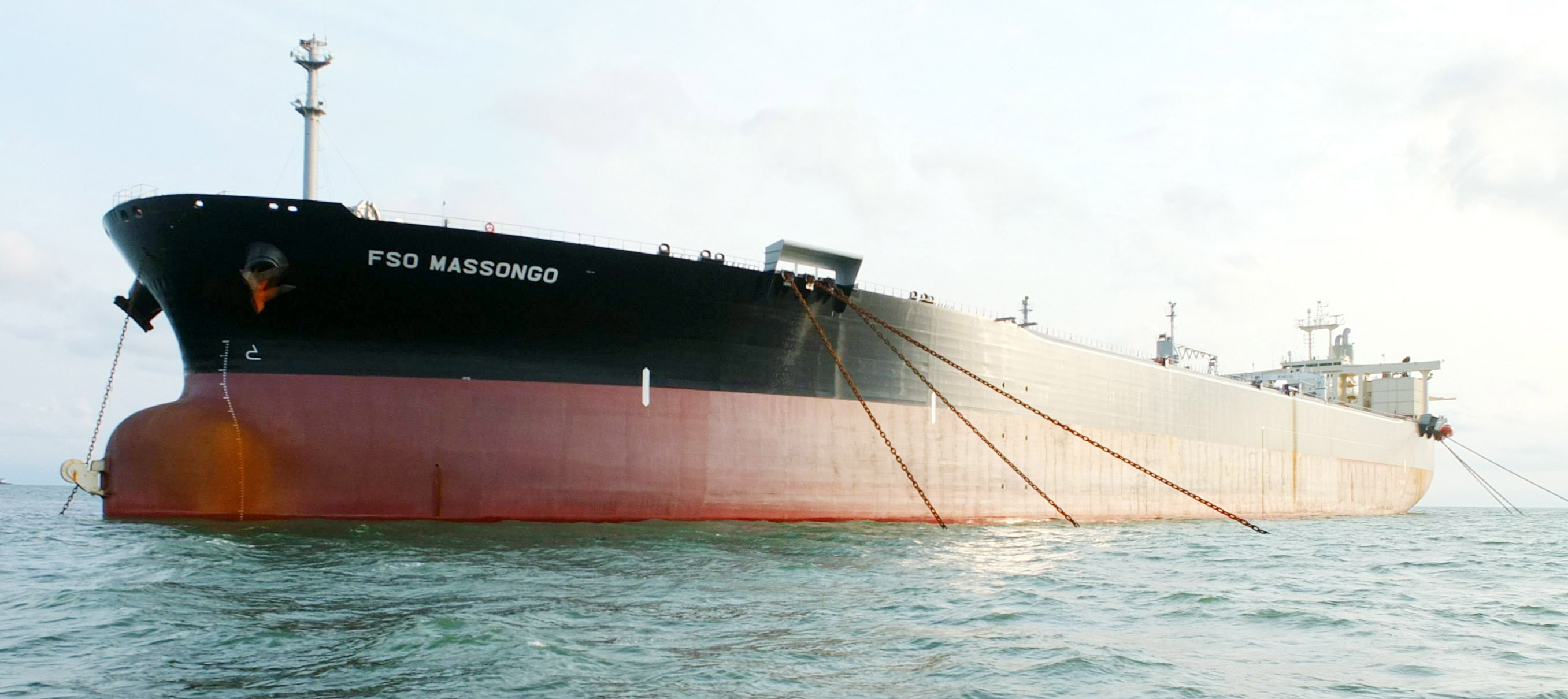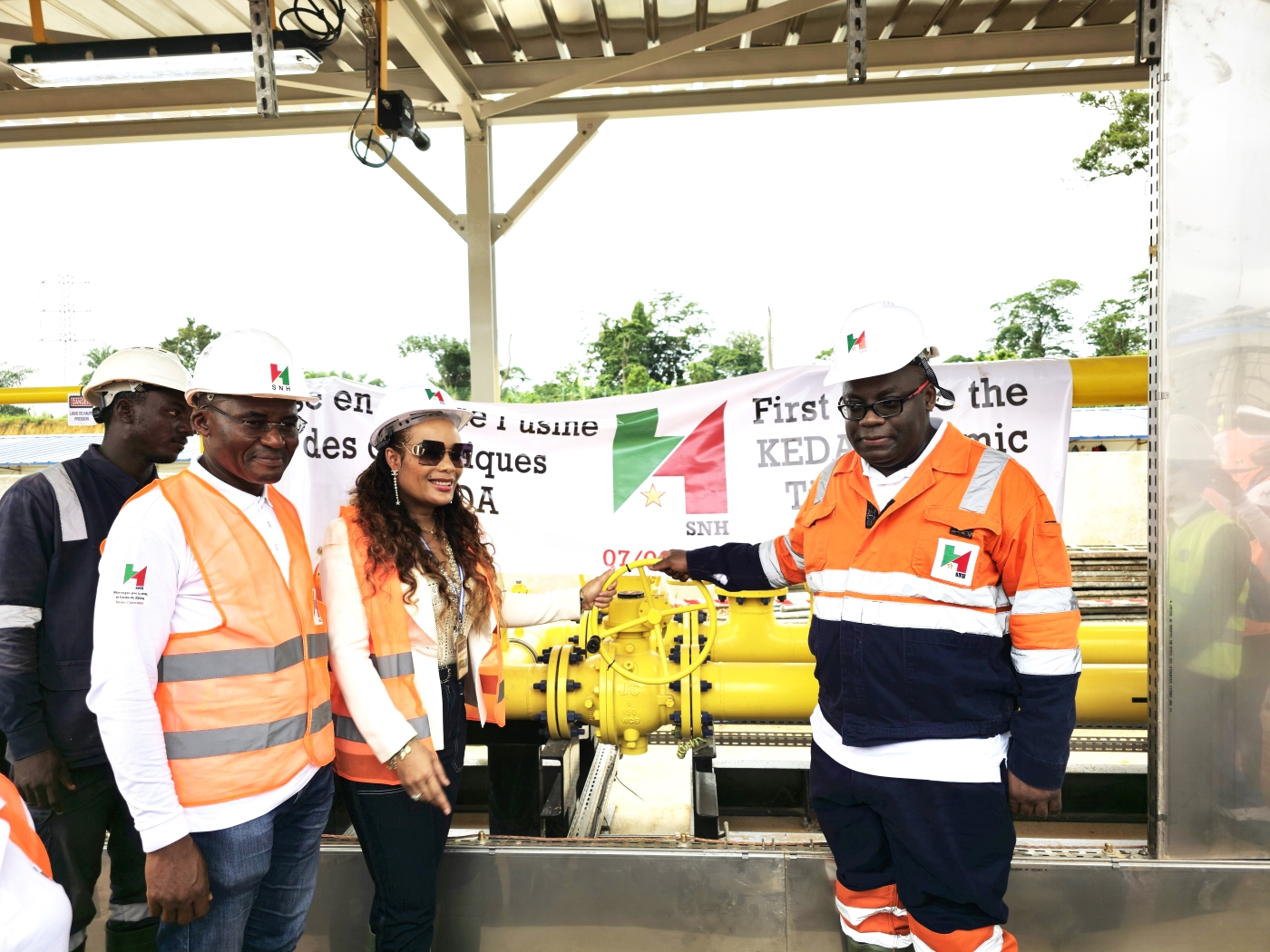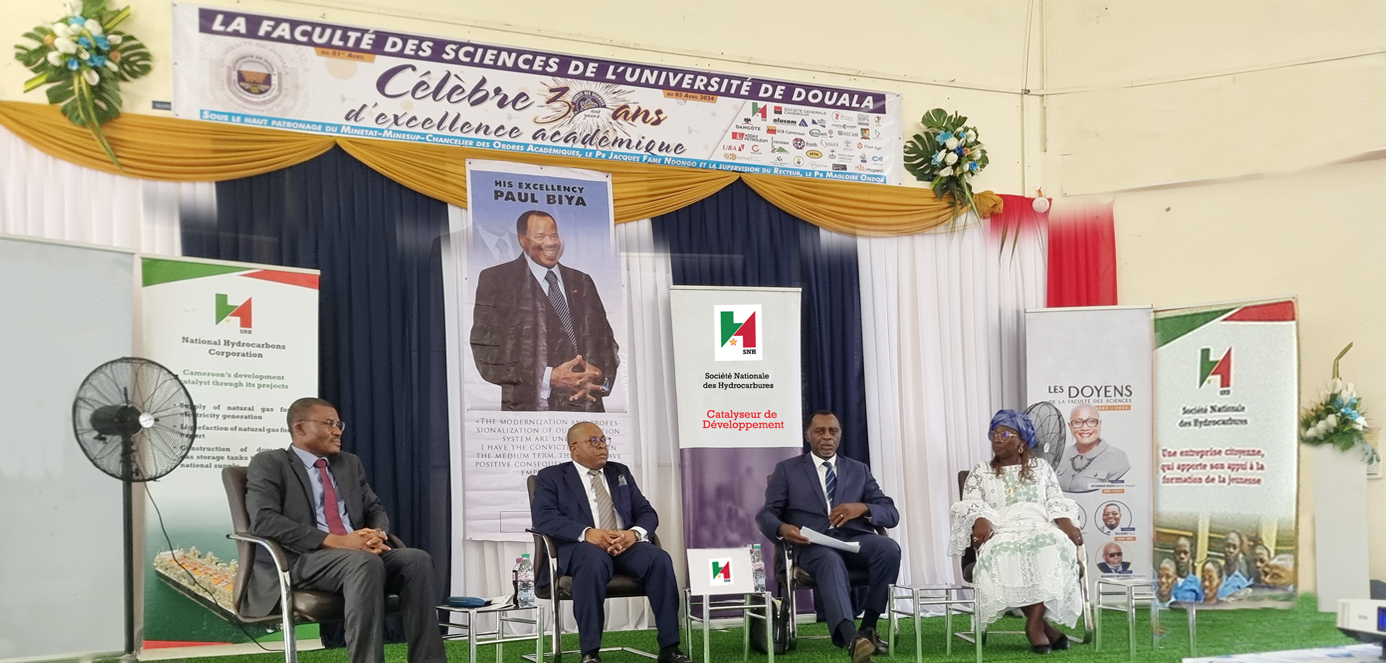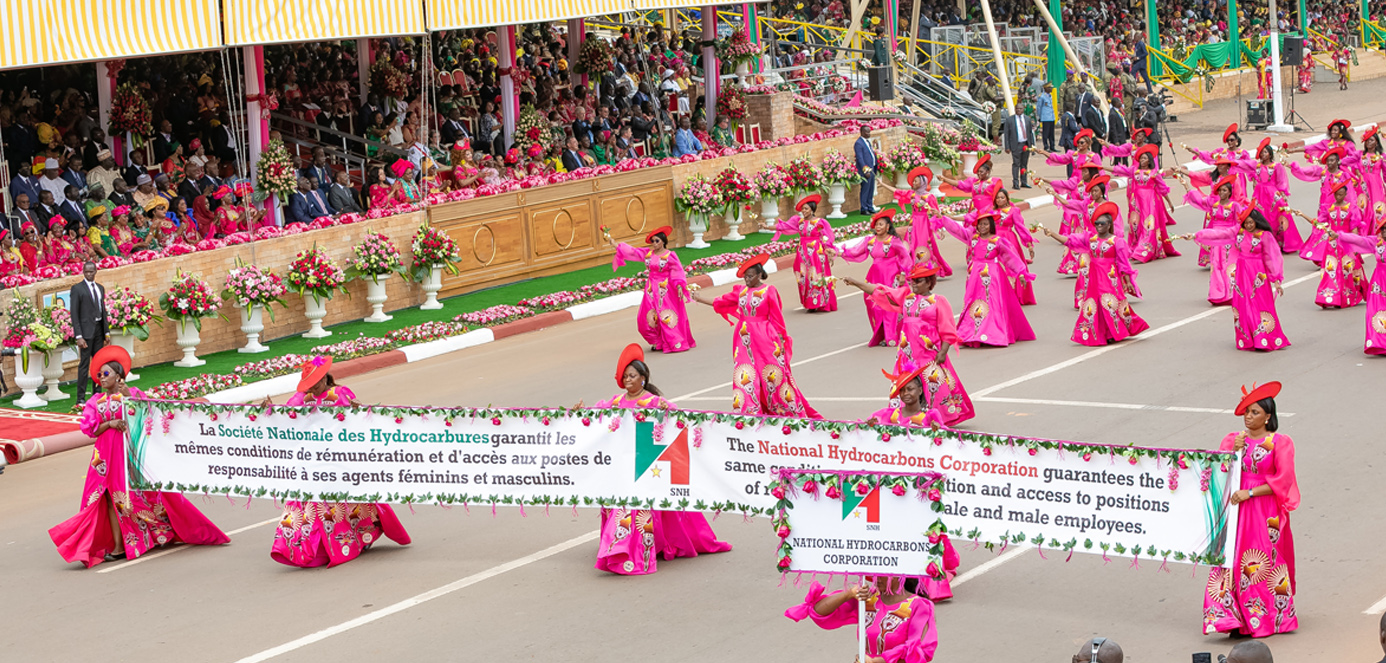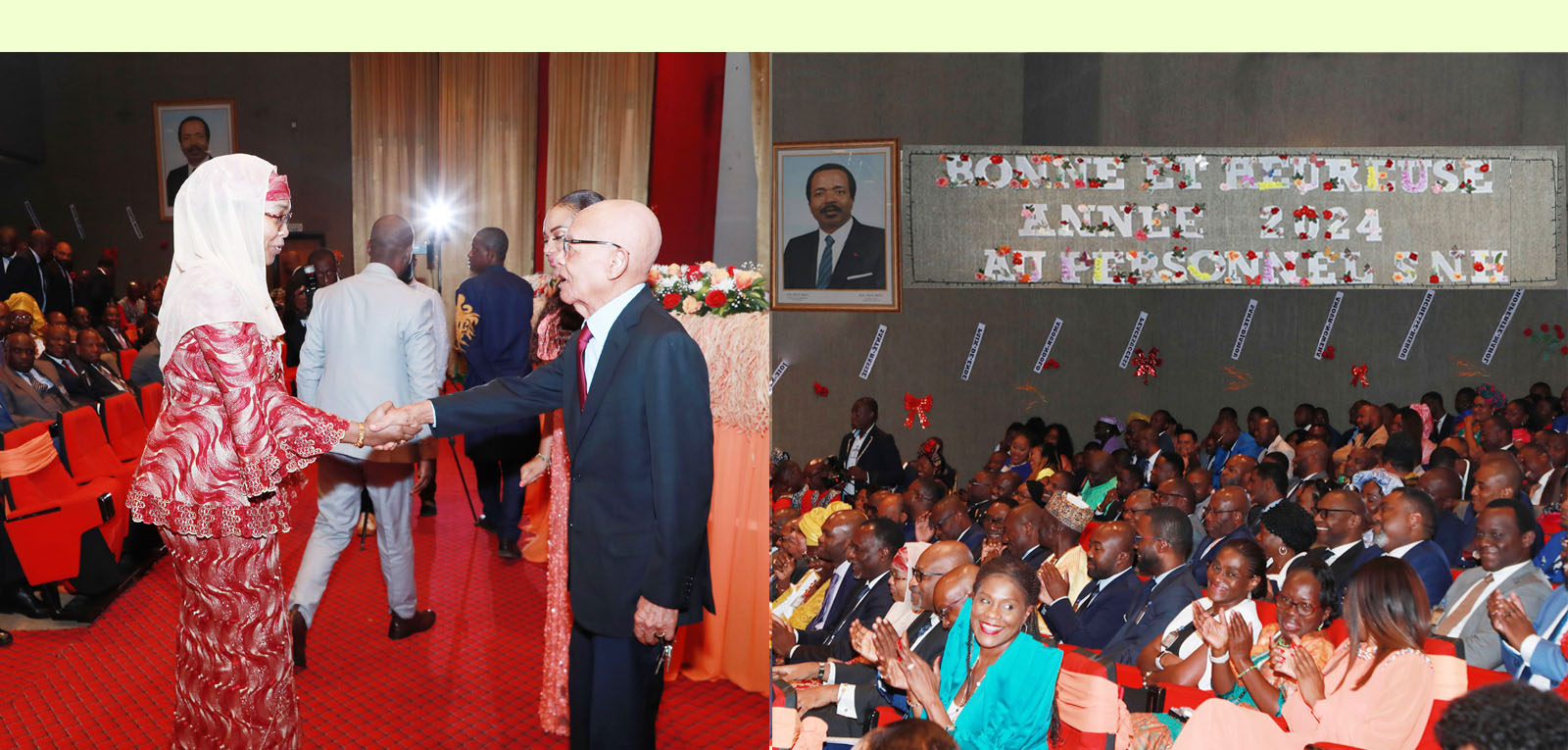Organisation Chart of the National Hydrocarbons Corporation
- Board of Directors -
The Board of Directors of SNH
Chairman: Ferdinand Ngoh Ngoh
Executive General Manager: Adolphe Moudiki
Members: Mana Nschwangele, El Hadj Lawan Bako, Jonhson Okie Ndoh, Lilian Nabola Efengue,Fritzgerald Nasako, Victor Aristide Mimbang and Isaac Richard Ngolle V.
- Divisions -
Exploration Division (DEX)
It is notably responsible for the formulation and implementation of the SNH hydrocarbons exploration policy. As such, it seeks partners to develop the mining domain, and then monitors and inspects prospecting and exploration activities carried out by oil companies in Cameroon.
Petroleum Information Centre (CIP)
Its main missions are to collect, store and market data generated by exploration/production activities (oil wells, seismic acquisitions and analyses, technical studies, etc.). CIP is also responsible for updating maps of the mining domain and ensuring the marketing of data. It notably manages a mapping portal, which gives remote access to collected data, and coordinates the setting up of a storage Centre for samples originating from oil and gas wells (CSEF) in the outskirts of Douala.
Production Division (DPR)
Its missions are, among others, to formulate and implement the SNH hydrocarbons production policy. It promotes, monitors and inspects development, exploitation and production activities. Within this framework, it manages petroleum associations and controls the costs of operations carried out by the latter.
Gas Division (DGZ)
DGZ is notably in charge of formulating the company’s policy on the development of natural gas. To this end, it designs, updates and implements the Master Plan for the development of national gas resources, notably in the domains of electricity, petrochemistry and supply to industries and households. This division is also responsible for conducting studies necessary to promote the use of natural gas as a source of energy or industrial feedstock, and for promoting, monitoring and controlling activities aimed at the development of gas projects.
Moreover, DGZ contributes to the preparation of files for the negotiation of agreements, contracts and other conventions for the sale of natural gas or other by-products jointly with the Marketing Division, and ensures that operators in the hydrocarbons sector comply with gas legislation.
Marketing Division (DCO)
DCO is responsible for marketing, on the international market, the share of national hydrocarbons (oil and gas) production accruing to the State, as well as SNH’s own share as an investor. Moreover, DCO follows up all problems related to the distribution and marketing of petroleum products throughout the national territory. Jointly with the competent administrations, it contributes to the formulation of regulations and implementation by the State of its downstream sector management policy.
Financial Division (DFI)
DFI is mainly responsible for managing funds and keeping the books of SNH (general accounting and cost accounting); keeping the books of State-mandated activities; inspecting and auditing the books of associates jointly with the competent units; effecting payments of all operations; managing the portfolio of SNH share companies.
Budget and Control Division (DBC)
DBC is notably responsible for budget preparation and follow-up, management inspection and internal audit of the company.
Planning and Development Division (DSD)
The missions of DSD are, among others, to carry out any studies necessary to evaluate the economic impact of policies advocated or decisions envisaged by SNH; to formulate objectives and formalise choices and strategic orientations aiming at the long-term viability and profitability of SNH; to conduct economic and profitability studies on investment projects initiated by the company.
Human Resources Division (DRH)
DRH is notably responsible for implementing the human resource management policy. As such, it draws up procedures for recruitment, training and career management and puts in place procedures for the evaluation of workers. Moreover, it prepares and follows up workers’ pay, jointly with the competent units.
General Affairs Division (DAG)
DAG is responsible for planning, putting in place and managing the material resources required for the proper functioning of SNH; organising and managing logistics; ensuring the management of SNH's property leases and the maintenance of rolling and operating equipment.
Legal Division (JUR)
The missions of JUR are among others, to ensure compliance with laws in the conduct of business within SNH. It gives legal opinion on all important matters referred to it, studies and draws up draft legal and regulatory texts, prepares files in defence of the Corporation in court. Moreover, it negotiates, draws up and manages all corporate insurance contracts, as well as any other contracts between SNH and third parties.
Computer Division (DI)
DI is responsible, among others, for counselling Management in the implementation of the Computer Master Plan and enforcing the decisions of the Computer Management Committee. DI defines the norms and methods of SNH computer developments. Jointly with operational units, it installs and manages data bases relating to the different SNH information subsystems. The management of all computer equipment and follow up of their maintenance are also part of its responsibilities.
Communication Division (COM)
COM is notably responsible for counselling and assisting Management and units of the company in the area of communication; the internal and external communication of SNH; promotion of its corporate image; current translation of documents; management of the documentation centre and archives.
SNH Douala Branch (R/SNH-Dla)
R/SNH-Dla is responsible, among others, for representing SNH with administrations, companies and/or organisations based in Douala. It also contributes to the influence of SNH as well as the promotion of its corporate image; organising, at the request of the head office, the logistics and reception of SNH guests in Douala or neighbouring towns; collecting data for the needs of head office units; monitoring and inspecting crude oil lifting.
Pipeline Steering and Monitoring Committee (CPSP)
This inter-ministerial structure is notably in charge of coordinating the interventions of Cameroonian administrations within the framework of construction, exploitation and maintenance of pipelines. Placed under the authority of SNH, whose Executive General Manager is the chairperson, CPSP has monitored, since its creation in 1997, the construction and exploitation of the Chad-Cameroon pipeline. In addition, CPSP has been carrying out the administrative supervision and technical inspection of the Bipaga-Mpolongwe (Kribi) and Logbaba-industries (Douala) gas pipelines since 2012.
Maintenance and Safety Division (DMS)
DMS is responsible for defining and implementing the maintenance policy for SNH's equipment and buildings, ensuring the maintenance of SNH's movable and immovable assets and the proper functioning of all its equipment. It also ensures the technical control of all work carried out by third parties on SNH's movable and immovable assets and equipment, the security of SNH's people and property, and contributes to the implementation of SNH's Quality and Standards policy.

